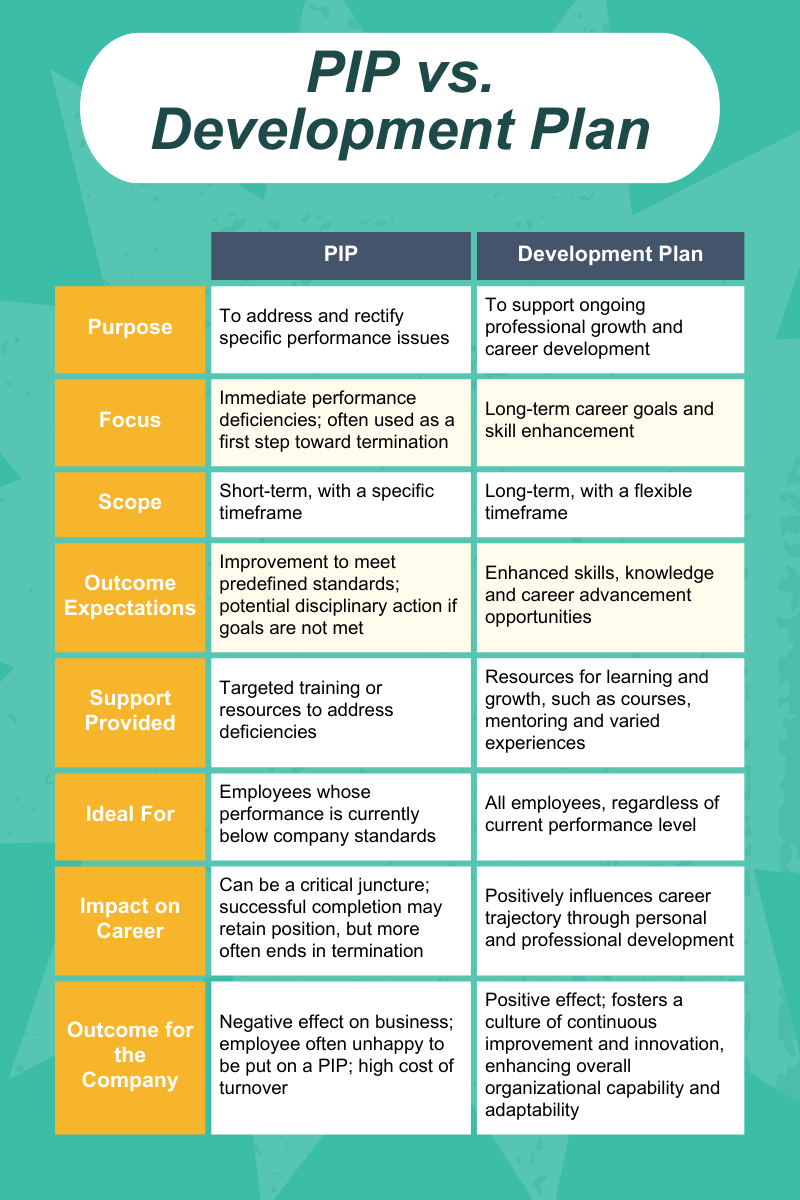As a leader or manager, you’re probably pretty familiar with PIPs (performance improvement plans). But how much do you know about development plans and the difference between the two?
Both of these plans are helpful in different ways. It’s like choosing between a sturdy umbrella and a warm, sunny day – both serve a purpose, but the outcomes and experiences are worlds apart. We’ve seen in our work with clients, time and time again, that true development plans are often overlooked. And leaders and managers are usually better equipped to write PIPs than development plans. So, in our journey toward promoting career growth and personal change, understanding these tools is not just beneficial, it’s essential.
Let’s start by looking at the two plans side by side. And then we’ll delve into why we think putting more emphasis on development plans will not only help your employees grow, but help your business thrive too.

Why Development Plans Shine
As you can see, both types of plans have a time and place. PIPs can help when there’s a problem to solve, but development plans are where growth truly happens. A company’s career development strategy isn’t complete without them. We believe that harnessing the power of self-discovery and personal change can transform your company and, if done well, make development plans not just an HR document, but a roadmap to your company’s success.
For leaders and HR professionals, embracing development plans is a testament to your commitment to nurturing a culture of continuous improvement and growth. Plus, when you embrace the idea of personal change, you empower individuals to take charge of their own growth journey.
Quick Tips for an Effective Development Plan
- Align with career aspirations: Ensure the plan resonates with the individual’s long-term career goals. This alignment fuels motivation and engagement.
- Align with company’s needs: Make sure the plan also aligns with the company’s long-term goals. We call this Shared Success.
- Find diverse learning opportunities: From e-learning courses to executive coaching, variety keeps the journey interesting and effective.
- Encourage self-reflection: There’s no self-discovery without self-awareness, and we know there’s no self-awareness without self-reflection. (See last week’s post for more on this!)
- Seek feedback: Feedback can be extremely helpful when deciding what your personal change should be. Be open-minded and embrace feedback from those you trust.
Next week, we’ll dive even deeper into the benefits of a development plan, what makes a development plan successful, and tips for creating your own. Development plans focused on personal change and growth are beneficial and essential for cultivating a thriving, dynamic workplace.
Looking for a tool to help your employees dive into personal change and create their own effective development plans? GrowWise can help! This virtual career development experience takes participants on a journey of personal discovery. Reach out for a demo!
